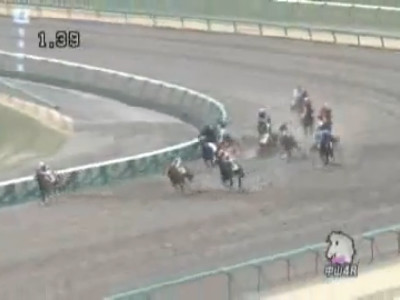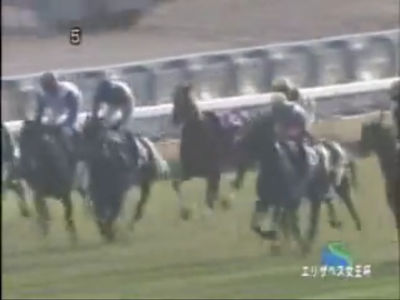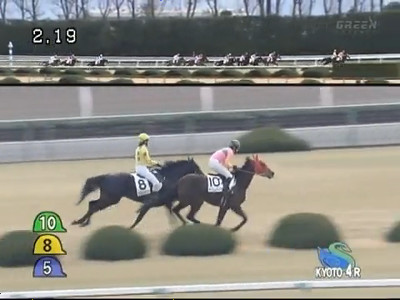Racehorses are unlikely to be aware that they are racing

'Do racehorses know that they are participating in a race?' 'Do racehorses have a desire to win?' 'Do they know what it means for their nose to cross the finish line?' Based on decades of experience and knowledge of horse behavior, Catherine Henshall, a lecturer in the Department of Agro-Environmental Veterinary Medicine at Charles Sturt University in Australia, says the answer to that question is 'no.'
Do racehorses even know they're 'racing' each other? It's unlikely

In the first place, from the horse's perspective, there is essentially nothing to be gained by winning a race. By crossing the finish line, you can get the result that you don't have to be whipped by the jockey anymore, but this is the same even if you are not in first place, and if the race is close, the leading group will be whipped more violently. You might even get hit. In other words, there is no incentive for a horse to voluntarily run fast in a race.
Running is a voluntary activity for horses, and horses may run together if they have the opportunity even if a rider is not present. However, Mr. Henshall points out that even though they may run in a group, the desire to ``want to be first in the group'' has not developed. For horses, which are social animals, group behavior in the wild environment is a behavior to minimize exposure to predators, and running faster than other members of the herd to be in first place increases the risk of predation. This is because it leads to.
Horse racing takes advantage of this tendency for horses to run in sync with other horses, while also training horses to ignore their natural tendencies and run in response to the jockey's signals.
The horses may not feel like they are participating in a race, but through training they learn what can happen during a race and what to do. Trainers and jockeys manage racehorses according to their personalities and abilities so that they can cross the finish line as quickly as possible.
Mr. Henshall believes that which horse wins in a race is more likely to be a combination of the horse's innate ability, physical strength, and the jockey's skill than the horse's desire to finish faster than anyone else. I'd say it's much higher.
However, it is also true that there are some races that make you wonder if you are running knowingly. In the 2022 Emperor's Sho (Spring), jockey Masamasa Kawada of No. 17 Silver Sonic fell off his horse immediately after the start, but Silver Sonic continued to run with the group as a empty horse without a jockey. He ran all the way to the finish line, marking the title holder who ultimately won.
2022 Emperor's Award (Spring) (GI) | Title Holder | JRA Official - YouTube
It may seem like the horse will lose control if the jockey loses control, but on the other hand, there are many cases in which a horse runs better when its ``weight'' of over 50 kg is removed. One of the most famous is the 2008 Queen Elizabeth Cup. The jockey of No. 5 Portofino, Toyo Take, fell off his horse immediately after the start, but Portofino was always in the lead, and although he bulged out from the third and fourth corners and disappeared from the broadcast footage, he cut inward in a straight line. I ran through the finish line one horse length ahead of Little Amapola, who was successful and victorious.
2008 Queen Elizabeth Cup (GⅠ) | Little Amapola | JRA Official - YouTube
Related Posts:







